T1D Guide
T1D Strong News
Personal Stories
Resources
T1D Misdiagnosis
T1D Early Detection
Research/Clinical Trials
Nancy Murphy: Type 1 Diabetes Advocate, Mother, and Champion for Blue Circle Health
Nancy Murphy has lived with type 1 diabetes for over 55 years. As a mother to a type 1 and a patient at Blue Circle Health, she shares her story of resilience, advocacy, and the impact of community-driven care.
.jpg)
When Nancy Murphy was only four years old, her mother noticed the symptoms of type 1 diabetes (T1D). First, she was wetting the bed and had no appetite. Then, her mother knew something was seriously wrong when, at Thanksgiving dinner, she ate nothing and just wanted to drink.
“I was the first in my family to be diagnosed,” said Murphy. “Back then, we tested sugar with a test tube and a tablet in water, then in high school, they came up with blood sugar testing, but it took a full two minutes to get results, and strips were expensive.”
Biggest T1D Challenges
Murphy said the most significant challenges she has faced with type 1 diabetes are gaining access to healthcare, insulin and the devices that help her manage T1D and maintain a healthy lifestyle.
“The pre-authorization process and insurance navigation are the biggest pain with diabetes. I have to call the doctor, the pharmacy, and the pre-auth company, and then I have to call them all again. They blame each other. I have literally spent entire days on the phone.”
Though Murphy’s been fortunate to have no T1D health complications such as diabetic retinopathy, peripheral neuropathy or kidney disease, she does have a bit of hypoglycemic unawareness (the inability to detect low blood sugar episodes).
“Over the past 10 years, I’ve had some seizures due to low blood sugar episodes. Once, a manager at Home Depot, who had a child with T1D, helped me through a low.” Murphy credits her insulin pump and continuous glucose monitor (CGM) for helping prevent this adverse reaction from happening. “I will say it’s gotten better having the Omnipod working with the Dexcom.”
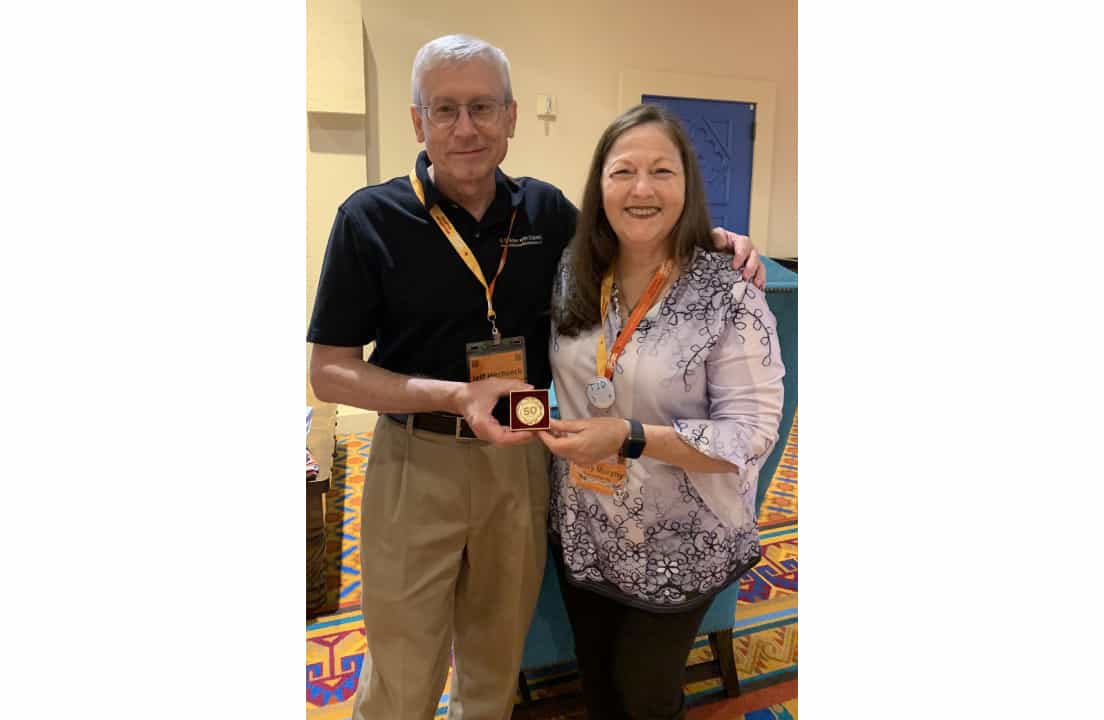
High Praise for Blue Circle Health
Murphy, RN, BHA, MBA, brings more than 25 years of experience in regulatory compliance, bridging healthcare and business leadership. Her background includes nationwide collaboration with regulatory agencies, insurance departments, and workers’ compensation boards. Despite her extensive professional experience, Murphy’s personal journey also brought her face-to-face with the same challenges many patients encounter.
After losing her health insurance, Murphy found herself at an impasse. Fortunately, a friend and fellow advocate, Scott Johnson, whom she met at the Friends for Life Conference in Orlando, encouraged her to enroll in the Blue Circle Health (BCH) program.
The nonprofit Blue Circle Health offers free virtual T1D care and support to adults aged 18 and older. Funded by The Leona M. and Harry B. Helmsley Charitable Trust, a philanthropy known for its generous donations to type 1 causes, the organization offers services at no cost and is now available in over 11 states nationwide. For eligibility and more information about what BCH has to offer, read here.
Blue Circle Health Services
“I had recently lost my insurance when I got connected with Blue Circle Health. The first thing I needed help with was finding insurance. There are so many choices,” she said. “This lady at BCH was incredible; she walked me through and helped me select a plan. The plan is amazing; my insulin is covered, and my Dexcom CGM has a small co-pay. They also have a patient assistance plan that helps cover over-the-counter (OTC) glucose tablets, blood glucose meters, glucagons, and sharps containers.”
Health insurance navigation isn’t the only service Blue Circle offers. Murphy, who enrolled in the six-month platform, said the advantages are endless. “They have so many benefits. I went through the whole program.”
In addition to the endocrinologist appointments, BCH provides educational courses and support groups. Plus, “everything’s virtual,” said Murphy. “I can’t rave about this program enough—the community support, little group meetings, and their cooking classes. The endo care was amazing; I had my doctor looking at my numbers and making adjustments. Every aspect of it was so perfect. It was six months; I participated in everything I could, including education sessions, pumps, and prescription assistance."
What's more, after completing the six months, you can still participate in the online sessions. “Alums of the program can join the support groups after your six months. It’s not like there are hundreds of people; you’re not on screen; it’s just the facilitator.”
Screening with TrialNet
Murphy knew that, as a type 1, close relatives are 10-15 times more likely to develop T1D than the general population. At the age of three, Murphy enrolled her daughter, Grace, in TrialNet, an international research network dedicated to preventing type 1 diabetes and enhancing health outcomes for individuals at risk.
“They kept having her come back every six months and doing a two-hour glucose tolerance test. Her sugars would always come back fine, but then when she was six, she tested positive for the autoantibodies.”
TrialNet identifies autoantibodies years before symptoms occur, preventing health risks, like diabetes ketoacidosis (DKA), a serious complication that may result in severe illness or even death if not treated promptly.
When your child tests positive, TrialNet provides regular bloodwork at no cost. They gradually started Murphy’s daughter on insulin and a low dose of long-acting insulin because her body was still honeymooning. After about a year, she was on a pump.
Some children may qualify for clinical studies to delay the onset of type 1 diabetes. TrialNet offered Murphy’s daughter, who was in stage 2 at the time, the disease-modifying therapy (DMT), Tzield, but Murphy declined. Tzield has been shown to delay T1D for up to two years in at-risk individuals.
“It was 2010, and it was still experimental,” she said. “I worried about how it might affect her reproductive health and what other complications could arise down the road. I knew insulin was safe. Now Tzield is FDA-approved, and they’ve done enough studies for it to be safe.”
T1D Clinical Trials
As a firm believer in using scientific progress to treat and manage the disease, Murphy involved her daughter in other clinical trials. At the age of 10, Grace was one of the first to be enrolled in the Bionic Pancreas program, where she attended camp with others partaking in the study. She was later a participant in the iLet Bionic Pancreas, developed by Beta Bionics.
Murphy attended the recent ADA’s 85th Scientific Sessions, and saw a renewed vigor for technological breakthroughs in diabetes care and management. Additionally, the technology showcased impressed Murphy, especially the new Twiist automated insulin delivery (AID) system and the Eversense 365 system, which features a sensor approved to last up to 365 days.
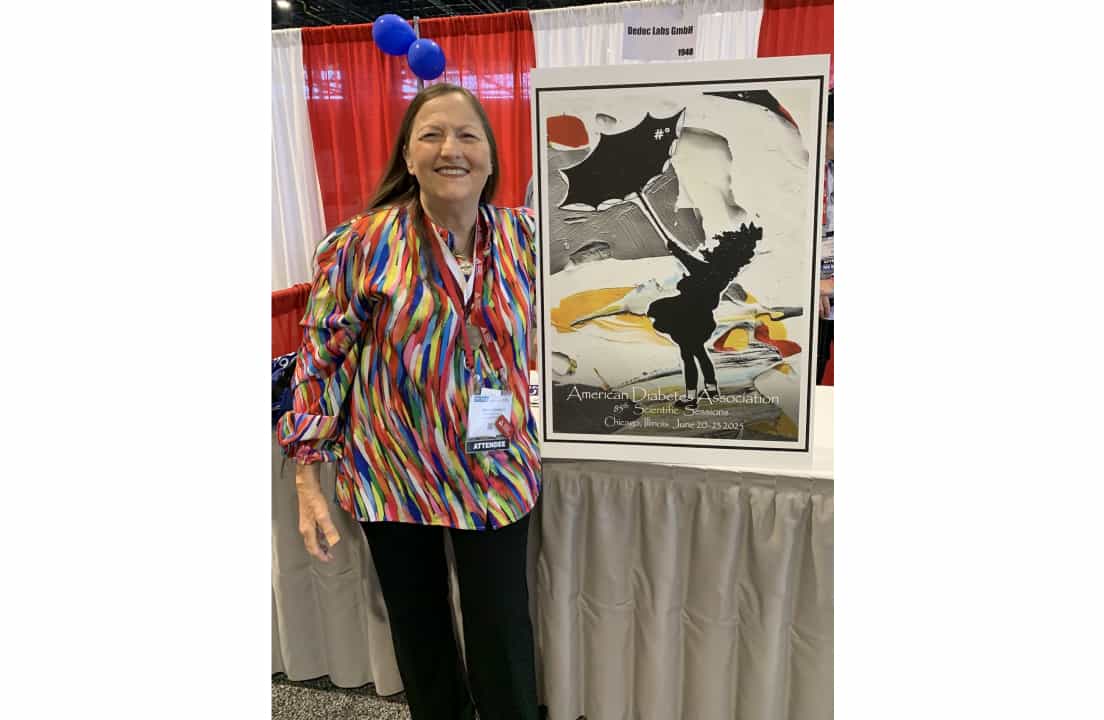
More T1D Technological Advancements
Murphy's biggest amazement over the years has been the advancement of technology. “The Dexcom has been the best thing ever.” When the Dexcom 3 became available, Murphy signed on. “It only lasted three days back then. Still today, if I had nothing else, I could live with shots and the Dexcom.”
“There’s so much going on with Tzield and delayed T1D onset. As far as a cure goes, they’ve been telling me for decades there will be a cure, but the idea of implanting beta cells in some way, whether they’re encapsulated, or where you don’t have to take the immunosuppressant drugs, sounds promising.”
Murphy added, “Vertex is working on this, and the Diabetes Research Institute (DRI) at the University of Miami has a BioHub, embedded in a small balloon, which contains the cells. The problem is oxygenation, as they need to function properly. I have hope for a cure at least in my daughter’s lifetime.”
Today, Murphy and her daughter, Grace, both share a passion for advocacy and frequently meet with members of Congress in their respective areas.
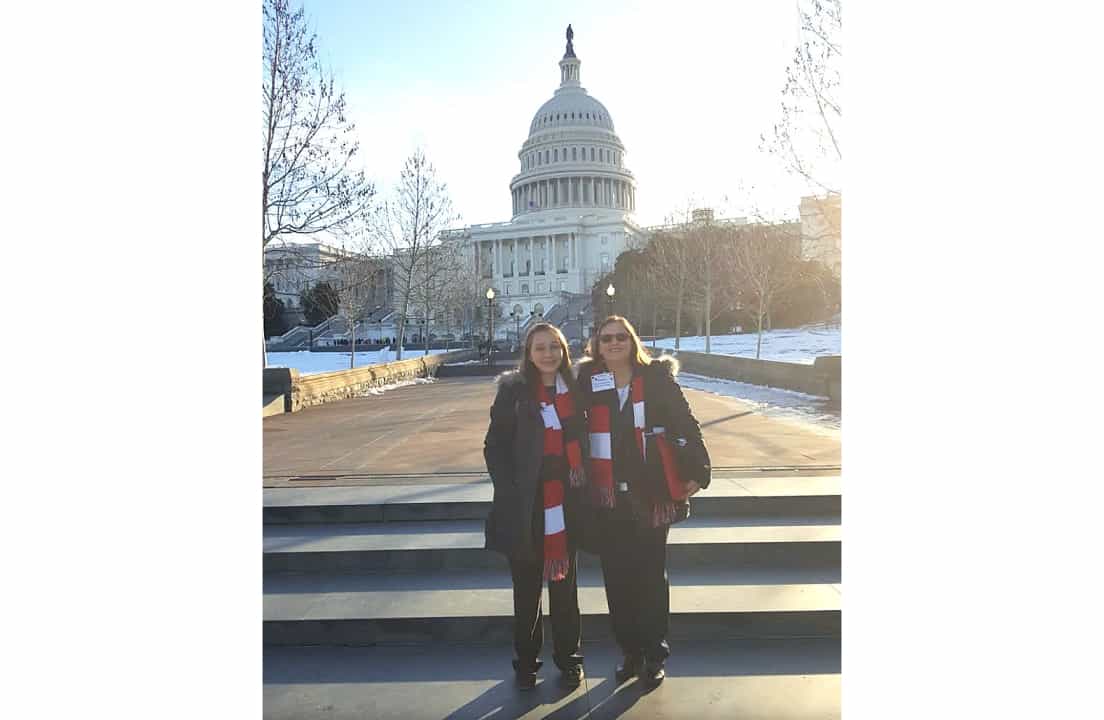
Your Voice Holds Power
From an early age, Murphy’s parents instilled in her the importance of advocacy. “I was diagnosed two years before Breakthrough T1D (Formerly JDRF) was founded, and we got involved soon after.”
But it wasn’t until her daughter was diagnosed that she took her fundraising to a new level. “When my daughter was diagnosed, that’s when I really got involved with the walks and the galas, with the American Diabetes Association (ADA), the Diabetes Research Institute (DRI), and Breakthrough T1D.” She also got involved with DPAC (Diabetes Patient Advocacy Coalition), an organization dedicated to promoting public health outcomes that improve the health of people with diabetes.
Championing Change
Since retiring as an RN, Murphy has concentrated her efforts on diabetes volunteering. Today, her advocacy work in Florida spans both state and national levels. Murphy serves as a member of the Florida Diabetes Advisory Council (DAC), which plays a crucial role in shaping the state’s awareness of diabetes prevention and management.
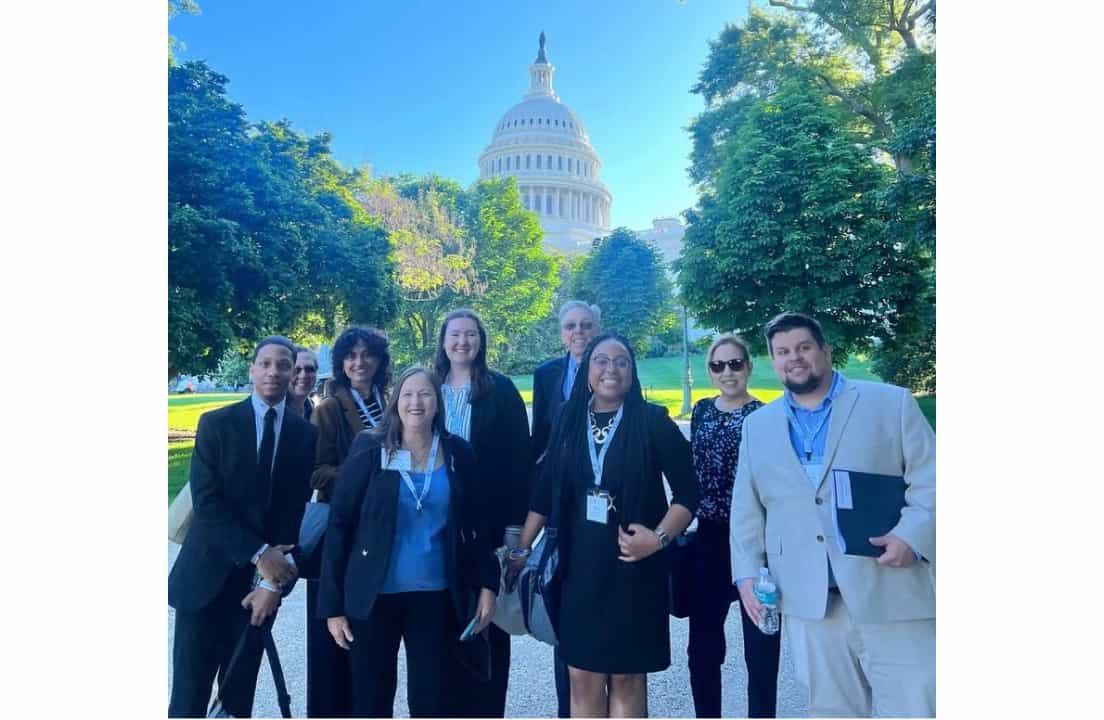
With DPAC, she’s advocated for improved diabetes policies and affordable insulin for all. “People are still rationing insulin. No one should ever, ever, have to do that. Or drive to Canada for a bottle of insulin; it should be affordable for everyone.”
DPAC was originally one of the first groups to call out the insulin crisis and unjust profiteering over a life-saving medicine. “I researched how much it costs to produce a bottle of insulin, and it’s between $2 and $6.”
Murphy calls for practical solutions to lower insulin costs, simplify insurance, and enhance healthcare access. “We were advocating for $35 a bottle. Another group she’s involved with is Voices for Action: People Living with Diabetes, an international organization comprising people from the Middle East, Canada, Australia, Europe and Africa. They just created a LinkedIn page. I love this group, its operations in other countries, and how it enables access to the care they need, as well as how it is both accessible and affordable.
Advice to the Newly Diagnosed
After more than five decades of living with diabetes, Murphy said the one piece of advice she would give to a family or individual with type 1 is not to stress over the numbers. “It is constantly changing. Time in range is the most important thing.”
“I encourage people to advocate, even if it’s simply calling your representatives on the phone. It takes two minutes, and often the scripts are already there for you. Use their websites, keep it in their ears, and let them continue to hear about diabetes. Everyone has a representative in Congress; you can reach out to them at any time. I remember once I heard that they love hearing from their constituents.”
The importance of moving towards a cure and making care accessible and affordable remains a critical goal for patients, families, and healthcare providers alike.

Additionally, Murphy encourages individuals with diabetes to pursue their goals and aspirations in life. “There’s nothing you can’t achieve.”
“My daughter has done eight triathlons, I’ve done marathons–I say you are not limited in any way, you can do anything that anyone else can do. You may need to carry a snack with you, but don’t stress over it and don’t let diabetes hold you back; do what you want to do.”


.webp)





.webp)
.jpg)

.jpg)
.jpeg)
.jpg)

.jpg)

.jpg)
.jpg)
.jpg)
.jpg)
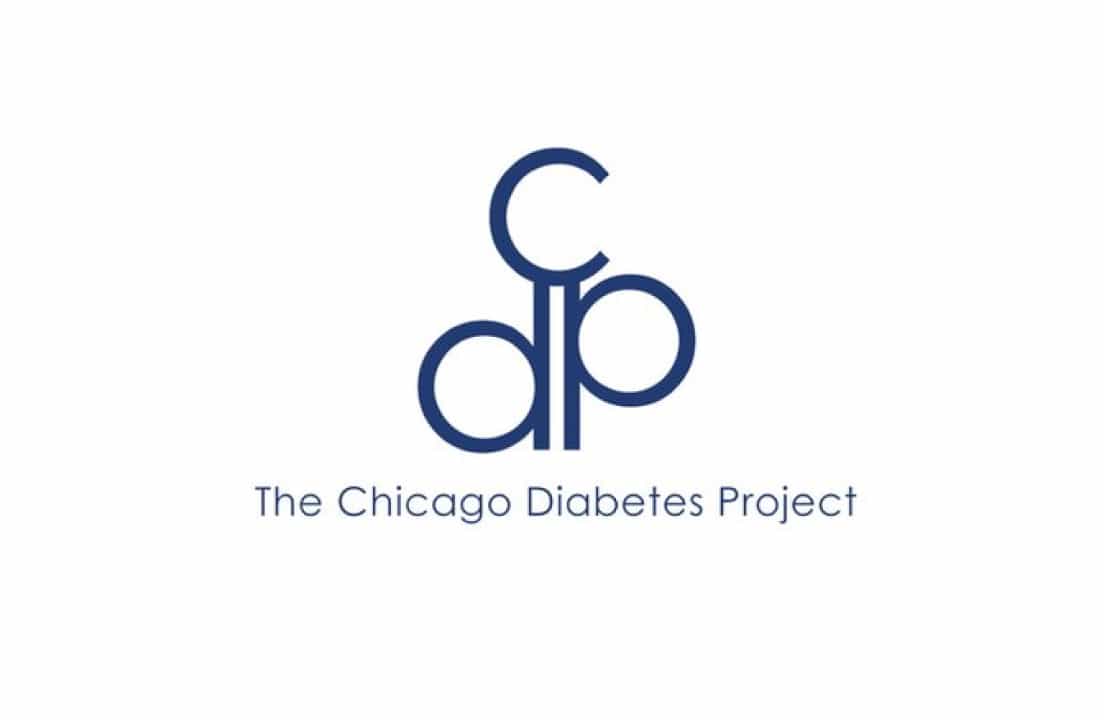
.jpg)
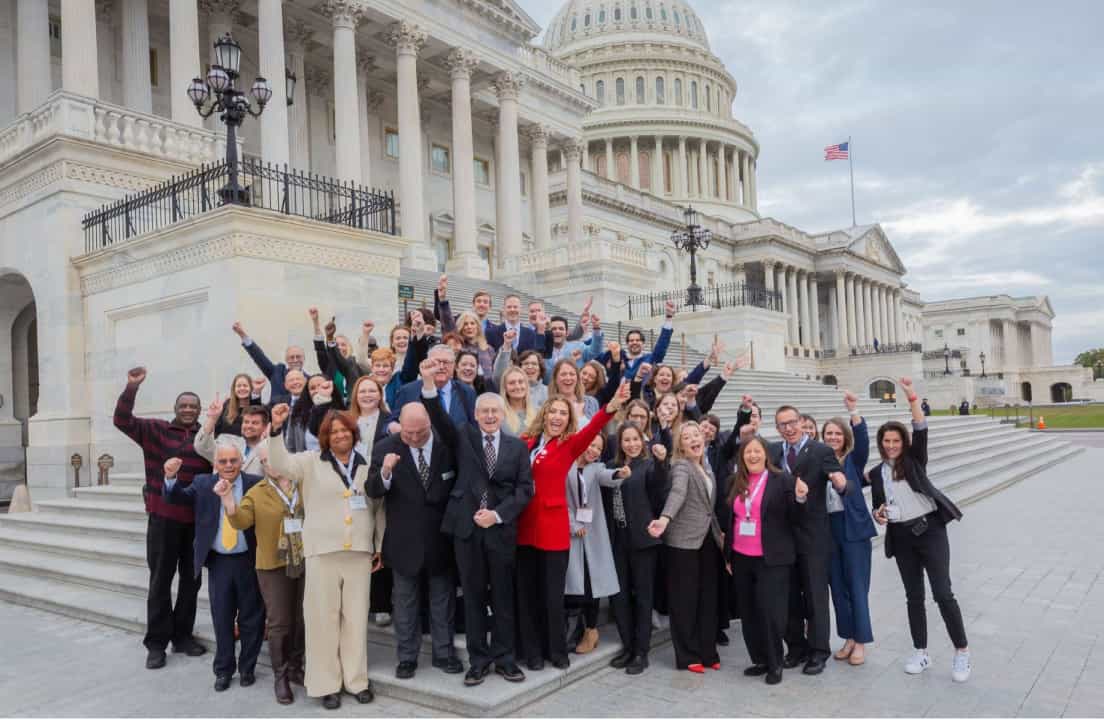
.jpg)


.jpg)
.jpg)

.jpg)

.jpg)
.jpg)


.jpg)
.jpg)

.jpg)
.jpg)
.jpg)
.jpg)

.jpg)
.jpg)
.jpg)
.jpg)
.jpg)
.jpg)

.jpg)
.jpg)

.jpg)
.jpg)
.jpg)

.jpg)
.jpg)


.jpg)
.jpg)
.jpg)













.jpg)


.jpg)













.webp)





%20(1).png)




.jpeg)






.jpg)








.webp)